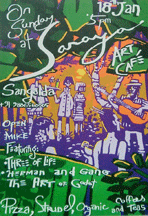|
News Analysis: Indian gov't ready to ban futures trading on commodities
|
| English.news.cn 2012-07-27 15:42:28 |
|
by Arup Chanda
KOLKATA, India, July 27 (Xinhua) -- With the vow of newly elected Indian President Pranab Mukherjee in his maiden speech to remove poverty, or "garibi hatao", the Indian government is now ready to ban futures trading in essential commodities and impose limits on stocks that traders can keep.
Former Indian Prime Minister late Indira Gandhi, who was Mukherjee's political mentor, had coined the slogan "garibi hatao" in the early 1970s.
With prices of vegetables and grains increasing by 50 percent last month because of an abnormally low rainfall, the government wants to prevent traders and speculators from exploiting the situation and making fast money.
A senior Indian minister said the government might not be able to do much to control prices of fruit, milk and vegetables but it planned to initiate long-term measures to improve cold-storage facilities.
To paraphrase a portion of his maiden speech to the nation, President Mukherjee said there is no humiliation more abusive than hunger and that it is the responsibility of the government to erase the word poverty in the dictionary of modern India.
Analysts here said that with his bold pronouncement, Mukherjee would not be a mere "rubber stamp president" like many of his predecessors.
According to them, Mukherjee would in fact advise the government on many issues and being a former finance minister since the days of late Prime Minister Indira Gandhi and an expert on Indian Constitution, he would ensure that the government functions in the interests of the masses.
A senior Indian minister said the government would step in effectively to curb price rise and had directed the commodities market regulator to submit a report on the rise in futures prices and what kind of actions could be initiated.
Prices of all food items from staples like wheat, sugar, cooking oil and pulses to dry fruits, onions and tea are rising because of a shortfall in the volume of rains, registered a 23 percent less than average despite the onset of the monsoon season.
This would also be compounded by the increase in demand of foodstuff during Indian festivals such as Ramadan for Muslims and Raksha Bandhan for Hindus.
Last month, the prices of turmeric, soya bean, wheat, sugar and pepper rose by 50 percent. The two important vegetables in Indian kitchens, potatoes and onions, have appreciated by 50 percent and 21.5 percent respectively last month.
Fruits too have become costlier by 15 to 20 percent as the demand has shot up due to the ongoing Ramadan period preceding the Muslim festival of Eid on Aug. 19.
Sugar production in India's top producer, the western state of Maharashtra, is expected to decline due to drought in the cane- growing region.
Vedika Narvekar, senior research analyst Angel Comtrade, said, "The festive season demand and a dry weather in the country are not only the reasons why prices are pushing. International commodity prices, which have surged ahead in the recent past, are impacting prices in the domestic market as well."
"The millers are buying wheat on a monthly basis as per their requirement. Now with the exporters entering the market across Rajasthan, Uttar Pradesh, Gujarat and Madhya Pradesh, prices have surged," said Raj Sood of Sood Brothers firm in Khanna wholesale market of India's northern state of Punjab.
http://www.xinhuanet.com/english/
| < Prev | Next > |
|---|
















